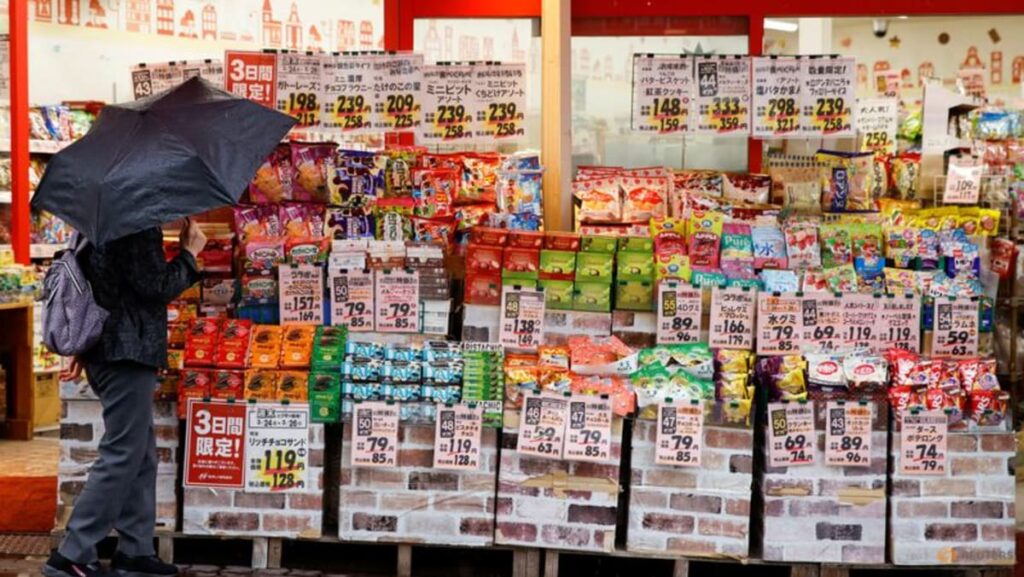TOKYO: Japan’s core inflation accelerated at its fastest annual pace in more than two years in April, data showed on Friday (May 23), raising the odds of another interest rate hike by year-end.
The data underscores the Bank of Japan’s predicament of balancing price pressures from persistent food inflation against growth headwinds from US President Donald Trump’s tariffs.
The core consumer price index (CPI), which excludes fresh food but includes oil prices, rose 3.5 per cent in April from a year earlier, exceeding market forecasts for a 3.4 per cent gain and accelerating from a 3.2 per cent increase in March.
It was also the fastest annual pace of growth for the index since the 4.2 per cent rise in January 2023, holding above the central bank’s 2 per cent target for more than three years.
“Underlying inflation remained strong in April despite the slashing of public high school fees,” said Marcel Thieliant, head of Asia-Pacific at Capital Economics.
“Our own view is that the persistent strength in inflation will convince the (BOJ) to hike interest rates yet again in October,” contrary to the dominant market view that US trade tensions will force it to hold fire this year, Thieliant said.
A Reuters poll of economists showed that the BOJ will hold rates steady through September, with a small majority forecasting a 25-basis point rate hike by year-end.
Another index stripping away both fuel and fresh food, which is scrutinised by the BOJ as a better gauge of demand-driven price pressure, rose 3.0 per cent in April from a year earlier, the data showed. It accelerated from a 2.9 per cent gain in March.
Food inflation accelerated to 7.0 per cent in April from 6.2 per cent in March, in a sign that many companies hiked prices at the April start of Japan’s new fiscal year. The price of rice spiked 98.6 per cent last month from a year earlier, while that of chocolate jumped 31 per cent.
Service-sector inflation was more moderate at 1.3 per cent in April, compared with 1.4 per cent in March, suggesting companies were slow in passing on rising labour costs, the data showed.
The BOJ ended a decade-long, massive stimulus programme last year and in January raised short-term interest rates to 0.5 per cent on the view that Japan was on the cusp of durably meeting its 2 per cent inflation target.
While the central bank has signalled readiness to raise rates further, the economic repercussions from Trump’s tariffs have complicated decisions around the timing of the next rate increase.

